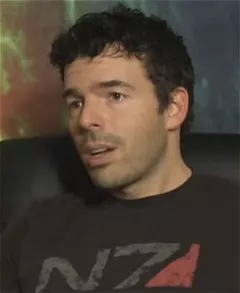Generally speaking, I don't think internal development is the best use of the D&D brand in video games. I would rather see robust licensing where we can get D&D crunchy tactical rpgs and action rpgs and cozy sims and 4X grand strategy games and narrative adventures and so on.
The difficulty is balancing corporate greed on the part of WotC with wanting D&D to succeed as a brand.
I don't mean that in some cynical axe grinder way either, I mean, it's a genuine issue.
WotC had a genuine question ahead of them, raised by BG3.
BG3, we know has sold upwards of 15m copies, which is just insane amounts of money. It looks like WotC got 5-10% of that revenue - which is nice because it's effectively "free money" for them - they put in very limited effort and no actual investment.
And with robust licencing, they could get a lot more of this kind of "free money". They'd need to employ a few more people to monitor/manage/encourage it, but it's not a large investment.
But what WotC is seeing is the 15m copies at $60+, and whilst that cost Larian $150m+ or whatever, and was risky, it may have made $2bn in revenue, and probably several hundred million in actual profit after everything is deducted. So WotC is thinking (rather questionably), "I could do that!", or rather, a bunch of suits in a meeting got together and probably had some pretty solid research, and decided it looked pretty possible to them.
The trouble I see is, the videogame business is a very uncertain one. Unless you have something that's "gone mainstream", and is an existing franchise, the odds of making significantly profitable game - i.e. lot more profitable, especially when opportunity cost is accounted for, than the "free money" from licencing is taken into account, are pretty damn low.
And I think WotC is probably making a mistake. I think they think that the BG brand, and/or the D&D brand, are more valuable than they are. BG3 didn't succeed because it was called BG3. It didn't succeed, really, because it was D&D. It succeeded because it was a masterwork from a studio that's been getting slowly better and better at designing RPGs for a very long time, and was coming off the back of two pretty successful RPGs. If they want to make their own BG4 or similar, that's going to cost them like like $200m, because they don't have the talent, the experience, any of it. They'll need to hire everyone - designers, writers, programmers, artists, mocap, etc. - and being real, if they try and jump straight to a full AAA, it'll probably take 6+ years for the whole process (already accounted for in the $200m), and they still might well make a game that is only... "okay", that gets 8/10 or 7/10-type scores, and the sales will probably cover the $200m, even after Steam's cut or the like, but, will they make it a worthwhile investment? No. Now maybe they'll somehow pull a rabbit out of a hat, and be pretty much the first corporate AAA ever to get a huge hit on their very first try - I think that's what they think will happen. But equally it might be worse than projected and be a genuine flop (I think the risks are lower with a CRPG at least because the game-buying public seems to have a greater tolerance for "being crap at release" in AAA CRPGs than any other budget level and genre).
Also it requires a huge level of commitment which I'm not sure is compatible with Hasbro's short-term-ism. Game publishers generally understand the game business. They know an AAA game often takes 4-6+ years to develop, and they're not going to cancel something unless it's looking like a failure - sometimes not even then - but Hasbro/WotC? Even if they're "relatively hands off", the huge amounts of money going in to what often looks from the outside like kind of a black hole tend terrify companies not used to this. I could very easily see WotC pulling one of these studios up to AAA, getting 4 years into a BG4, and Hasbro deciding that, in order to look good for the investors, actually they're just dropping that game, even though it was completely on-track. I actually think that's how this will end - Hasbro getting WotC to sell off or shutter these studios before any of them but Archetype actually put out an AAA game.
EDIT - To draw this back to the original point re: greed, probably for the long-term health of D&D as a brand/IP, and the far less risky option, would be to bulk out the D&D licencing team, and aggressively seek out licencees. But nobody is a "Big Damn Hero" for that. We saw that with Mearls - he and his team were fired (the Treantmonk video above incorrectly and rather dementedly claims the only evidence for this is Swen's tweet - not true - we know those people were fired by their own accounts and their LinkedIns showing they left WotC at that time, so not sure what Treantmonk was smoking there) as a reward for making WotC tens of millions from that deal. Whereas if you claim to be behind spending $200m on developing a videogame and then profiting to the tune of a couple of hundred million (which would be lucky but w/e), you'll absolutely be a Big Damn Hero, with associated promotions, pay bumps, insane bonuses, stock offers and so on. And if it flops? Oh well, not your money, and absolute worst case you're probably already getting hired on the basis of your "expertise" managing a $200m project at some other company, before it actually releases into flophood (though even after you will likely be fine - there are a million excuses and the people hiring you want the same excuses for their own failures so won't contradict them). Equally, if you come on board at WotC, or get promoted, and one of your first acts is to cancel that "wasteful and ill-advised" $200m project, you are a Big Damn Hero who prevented WotC sending good money after bad, and you can add it to your CV, even if the project actually completely on-track.





